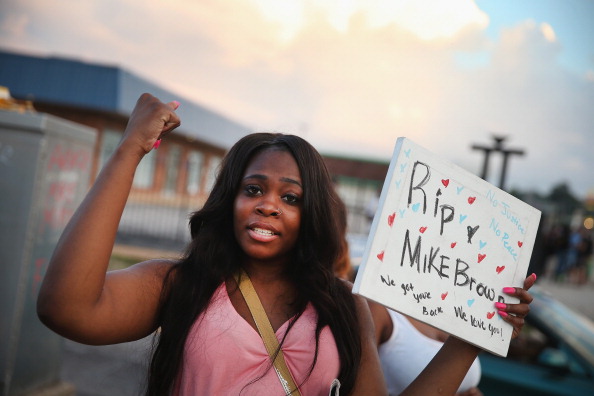
By Muhammed Malik, Amnesty International USA Member
Today, people across the country attended vigils and solidarity actions to mourn the victims of police brutality, a problem that has gripped this nation for far too long.
A few days ago, a police officer in Ferguson, Missouri confronted Michael Brown – a teenager who was full of promise and who had his whole life ahead of him. There are conflicting reports about what happened next, but the end result was the officer shooting the unarmed Brown.
Michael Brown’s dreams of going to college shattered in that moment, and his parents and family are left mourning over a son, cousin, and grandson. #MikeBrown’s death has reignited a national conversation about race and policing and the deep injustices of state violence on the streets of the United States.
When children grow up - if they are not themselves killed by police or gun violence first - too often they are scarred and traumatized because our government has failed to take positive steps to prevent this violence.
And all of this painfully reminding communities of color, in particular, that devaluation of Black and Brown life remains a poignantly unresolved human rights crisis on the streets of the United States.
But, sadly, this is not new. We have seen examples of Michael Browns before. The list of young people of color deprived of their right to life by police is long and, disturbingly, growing.
As an Amnesty International activist and organizer against police brutality here in Miami, I have seen this first-hand – when we organized rallies against the Miami Beach police for shooting to death Husien Shehada, a young Palestinian-American tourist. And, more recently, when Israel “Reefa” Hernandez – an unarmed young Latino graffiti artist – was taser-killed by Miami Beach police.
As we continue to organize on the streets for “Reefa,” it’s the tears on the faces of family members and friends of Reefa that compel us to keep pushing for justice.
Black, Latino, Palestinian, LGBT, women – the impacts on all communities are tragic and real. But impacts don’t stop at family and friends. When the state takes away the life of a human being in a community, the entire community is impacted.
The tragedies of Michael Brown, Husien Shehada, and Israel “Reefa” Hernandez impact all of us, everywhere, because everyone has the human right to life and to be safe in our communities, and to be free from discrimination and when these rights are not protected, our communities become locked in fear and polarized.
Mothers and fathers live in constant fear that what should ordinarily just be a walk in the park for their child might transform into a moment of brutal state violence. Communities lose faith in their judicial system and that lack of trust can lead to a sense of nihilism and depression that saps communities and undermines civic engagement.
And when children grow up – if they are not themselves killed by police or gun violence first – into adulthood, too often they are scarred and traumatized because our government has failed to take positive steps to prevent this violence and hold those responsible to account.
Amnesty International supports an independent, impartial investigation of the death of Michael Brown and of the apparently heavy-handed tactics used by police in the aftermath of Michael’s death.
Today, we also will participate in a National Moment of Silence in solidarity with victims of police brutality – with physical events and vigils across the United States, as well as virtually showing solidarity.
All people deserve to feel safe in their community. We must honor Michael, Reefa, Husien and all the others because all lives matter. Human rights matter. I hope you will join me.
Muhammed Malik is a long-time community organizer in Miami and is one of the co-founders of the “Justice for Reefa” police accountability committee. A member of Amnesty International for 10 years, he is the founder and former president of Amnesty International at Florida International University.
